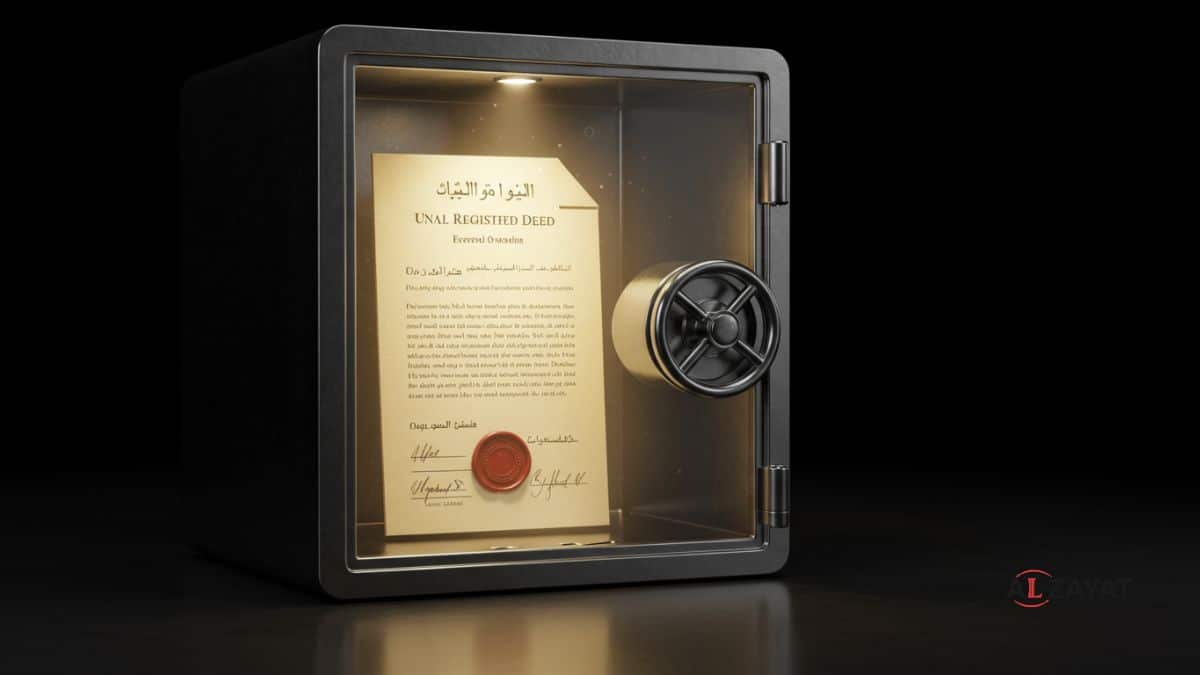The process of property ownership registration in Egypt is the single most critical step in any real estate transaction. Yet it is a subject of widespread misunderstanding. Many buyers, both local and foreign, fall into the trap of believing that a signed sale and purchase contract is enough to secure their rights. This includes contracts validated by a “saha tawkea” court verdict. This is a dangerous misconception. Without completing the official registration process at the Public Notary Office (“Shahr El Aqary”), you do not possess true, legally defensible ownership. You merely hold a contractual claim against the seller. Consequently, this leaves your most valuable asset profoundly vulnerable to future disputes and significant legal complications.
The Ultimate Guide to Property Ownership Registration in Egypt (2025)
At Alzayat Law Firm – Egypt’s First International Law Firm, our entire real estate practice is built on the foundation of securing our clients’ assets with indisputable title. We understand the complexities of the Egyptian registration system and the anxieties they cause. This guide is therefore designed to demystify the process and explain the profound importance of official registration. It provides a clear roadmap to achieving legally sound ownership. Contact us today for a confidential consultation to protect your investment.
True Property Ownership vs. Contractual Claims in Egypt
In Egypt, true, legally recognized ownership of real estate is only achieved through one method: official registration. This results in the issuance of a final registered deed, often referred to as a **”Green Contract”**. Any other document is not proof of ownership. This is the most crucial fact in the entire field of property ownership registration in Egypt. It is a core principle of Egyptian property law, as outlined in foundational legal texts referenced by global bodies like the World Intellectual Property Organization (WIPO).
Why a “Saha Tawkea” Verdict is Not Enough
A “validity of signature” (`saha tawkea`) court verdict only proves that the seller’s signature on your sale contract is authentic. It does **not** transfer legal ownership or protect you from a third party who successfully registers the property first. It is a preliminary step, but it is not the final shield that registration provides.
The Step-by-Step Process of Property Ownership Registration
Navigating the registration process requires a meticulous and systematic approach. While every case is unique, the journey typically involves these key phases. Each phase demands careful legal oversight.
Phase 1: Pre-Contract Due Diligence for Secure Registration
Before you sign anything, our first step is to conduct a comprehensive legal due diligence review. This preventative measure is a cornerstone of best practices promoted by institutions like the World Bank to ensure secure land tenure. This includes verifying the seller’s title deed to ensure an unbroken registered chain of ownership, conducting a deep search at the relevant Shahr El Aqary to confirm there are no mortgages or liens. Additionally, ensuring the property’s survey data is accurate.
Phase 2: The Registration Journey to the Green Contract
This is the core administrative and legal process for property ownership registration in Egypt. It involves submitting a formal application, commissioning a technical survey from the Surveying Department, and paying the state registration fees. Once all reviews are complete, a final contract is prepared by the Shahr El Aqary. Both buyer and seller sign this contract. The final registered deed—the “Green Contract”—is issued, granting you indisputable ownership.
What if the Seller is Uncooperative? The “Sahat wa Nafath” Lawsuit
If a seller refuses to complete the registration, we file a specific type of lawsuit known as “Sahat wa Nafath.” A final judgment in this lawsuit legally replaces the seller’s signature at the Shahr El Aqary. This allows us to complete the registration forcefully through the court. It is a powerful tool our litigation team uses to protect our clients’ rights.

The Green Contract is the ultimate shield for property ownership registration in Egypt, stamped with the Alzayat Law Firm – Egypt’s First International Law Firm logo.
Frequently Asked Questions (FAQ)
How long does the property registration process take in Egypt?
The timeline can vary significantly. A straightforward registration can take a few months. However, cases with broken chains of title or those requiring a “Sahat wa Nafath” lawsuit can take considerably longer. Proactive legal management by specialized property ownership registration in Egypt experts is key to expediting the process.
Can foreigners register property in their name in Egypt?
Yes, Egyptian law allows foreigners to own real estate for residential purposes, subject to certain conditions and limitations. We provide detailed counsel on these rules, which are often outlined by bodies like the General Authority for Investment and Free Zones (GAFI), and manage the entire registration process.
About the Author
DR . Mia ALZAYAT is the Senior Partner at ALZAYAT Law Firm, specializing in complex real estate transactions and litigation. With over 20 years of experience, he has successfully guided hundreds of domestic and international clients through the Egyptian property ownership registration process.
Sources
The Egyptian Civil Code; Law No. 114 of 1946 regarding the Regulation of the Real Estate Registry.

